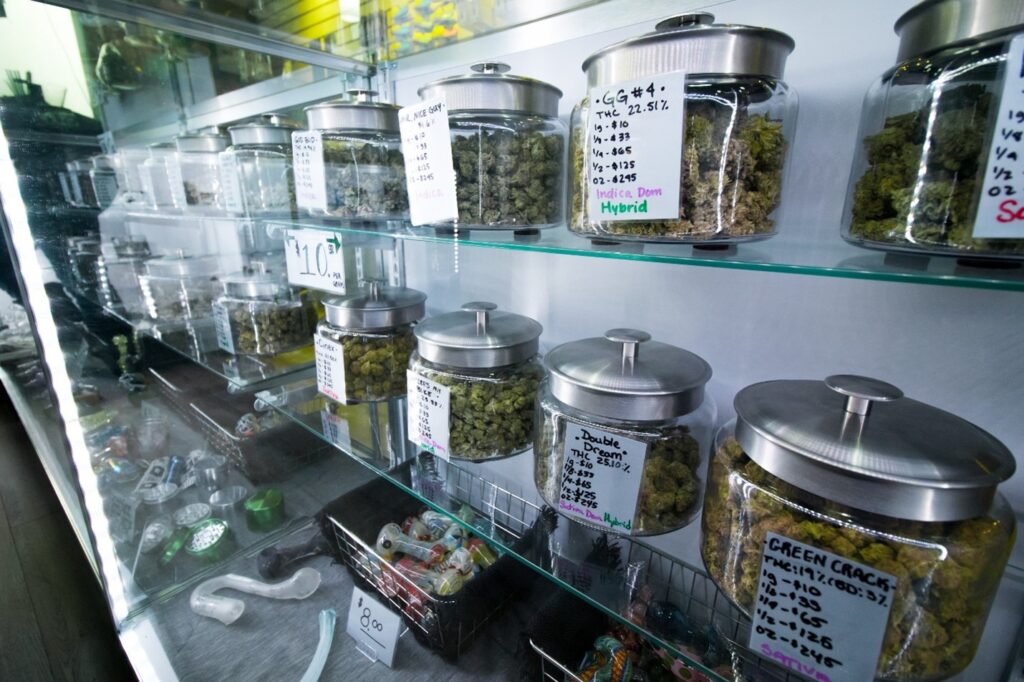
By M.H. Cavanaugh
Christian Action League
August 20, 2021
The bill that would legalize medical marijuana in North Carolina, SB 711 – NC Compassionate Care Act, was taken up by the Senate Judiciary Committee on Wednesday. An earlier version of the measure had already passed the Senate Judiciary Committee and the Senate Finance Committee. It was expected to be heard next by the Senate Health Care Committee. However, substantial changes to the proposal resulted in its removal from Health Care and sent back to Judiciary.
Proponents have consistently argued the bill was a work in progress.
The review of the revisions in the Proposed Committee Substitute (PCS) was for “discussion only,” and no vote was taken on the bill.
Sen. Bill Rabon (R-Brunswick), the legislation’s champion, said the changes made to the measure came after consultations with the North Carolina Department of Health and Human Services and were also drawn from regulations in similar medical marijuana legislation that had passed in Utah.
The changes included:
- Amending the definitions for cannabis-infused products and debilitating conditions.
- Adding a definition for smoking and for vaping.
- Changing the name of the Medical Use Advisory Board to the Compassionate Use Advisory Board.
- Creating new requirements for physicians.
- Instructing the Medical Care Commission to adopt a rule limiting the number of written certifications a physician may issue at any given time.
- Requiring a registry identification cardholder to carry and disclose their registry identification card to law enforcement (much like concealed carry, said Sen. Rabon.)
- Add the Agriculture Commissioner and a chief of police to the membership of the Medical Cannabis Production Commission
- Prohibit smoking and vaping in certain places (such as 1,000 feet from a workplace, K-12 school, child care facility, or house of worship).
- Regulate hours, age to enter, and location of medical cannabis centers.
Rev. Mark Creech, executive director of the Christian Action League, said the hearing on the bill provided another opportunity to appeal to state lawmakers to reject the concept of “so-called medical marijuana.” He said he was especially concerned the legislation touted marijuana as a treatment for veterans who have PTSD.
“I believe much of the testimony given in committee hearings in favor of marijuana as a medicine for suffering veterans doesn’t show the larger picture,” Creech said. “There’s strong evidence to the contrary.”
In his testimony before the Senate Judiciary Committee, Creech made a passionate plea:
“Mr. Chairman and members of the committee…
“This legislation isn’t about me, but since taking a stand against it I’ve been accused of being heartless, insensitive to the pain of others, even those who are dying. But I doubt that few people in this room have witnessed more suffering and more death than myself as a clergyman. I’ve held the hands of innumerable afflicted people, prayed with them and for them. So, I’m not uncaring. I, too, care about veterans who say they need marijuana for PTSD.
“But I can’t get past a systematic review of over 500 studies on marijuana use and military veterans published in the journal Clinical Psychology Review – the first of its kind – which found marijuana use among veterans was associated mostly with adverse outcomes such as substance abuse, mental health issues, and instances of self-harm and suicide.
“Recently, another study published in the journal ‘Depression and Anxiety’ found marijuana use among military personnel with PTSD symptoms may lead to suicidal thoughts and behaviors.
“And then, there is a Yale study published by the Journal of Psychiatric Research that found marijuana-dependent Iraq/Afghanistan-era veterans have an increased risk of suicidal thoughts and attempted suicide.
“These are pesky findings that cannot be easily dismissed. Declaring marijuana as medicine for our veterans or anyone else gets ahead of the science and essentially ignores all the official statements of the nation’s top medical associations that currently say smoked marijuana is not medicine. It ignores much of the research which finds its use may be exacerbating mental health harms among our nation’s veterans.
“No, I care! I care deeply enough to risk being misunderstood and misrepresented to boldly say we shouldn’t be doing medicine by legislative fiat, especially when it’s largely based on anecdotal evidence and inconclusive research.
“This bill has the hubris to say that we are certain this can help our veterans when it’s actually unclear whether it would do more harm than good.
“The Bible says, ‘Wisdom is justified by her children.’ This bill is not wise.”
It is unclear when the Senate Judiciary Committee will take up the measure again to approve the bill’s changes.
